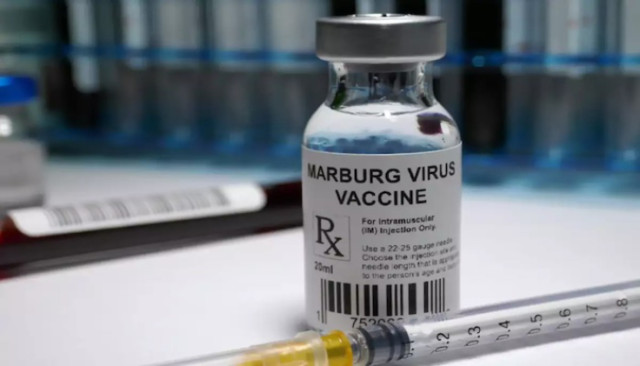Rwanda has announced on Monday that it will begin vaccine trials for the deadly Marburg virus, which has claimed at least 12 lives.
Following the deadly virus, the country has received 700 doses of the vaccine from the US-based Sabin Vaccine Institute.
According to Rwanda Health Minister, Sabin Nsanziman, "the trials will prioritise high-risk groups, such as healthcare workers and individuals who have come into contact with infected patients."
The Marburg virus, similar to Ebola, causes severe symptoms including fever, muscle pains, diarrhea, vomiting, and in some cases, death from extreme blood loss.
Rwanda’s health ministry has reported 46 cases so far, the source of the virus, however, remains unknown.
Nsanzimana reassured the public about the vaccine’s safety, highlighting that trials had already been conducted in Kenya and Uganda.
The vaccine has only been tested in adults aged 18 and older, with no current trials planned for children.
Rwanda is also considering ordering more doses as part of its broader strategy to combat the outbreak.
The World Health Organisation (WHO) asserted that the Marburg virus has an average fatality rate of around 50%, with previous outbreaks showing mortality rates ranging from 24% to 88%.
Following the outbreak, Rwandan authorities have introduced "restrictions on funeral sizes for victims and are preparing to implement travel restrictions. Measures such as temperature checks, passenger questionnaires, and hand-sanitising stations will be introduced at travel departure points," the minister said.
The virus is believed to be transmitted to humans from fruit bats and spreads through contact with bodily fluids from infected individuals.
Rwanda’s neighbouring countries, including Tanzania and Uganda, have experienced previous outbreaks, with deaths reported as recently as 2023 and 2017 respectively.




















